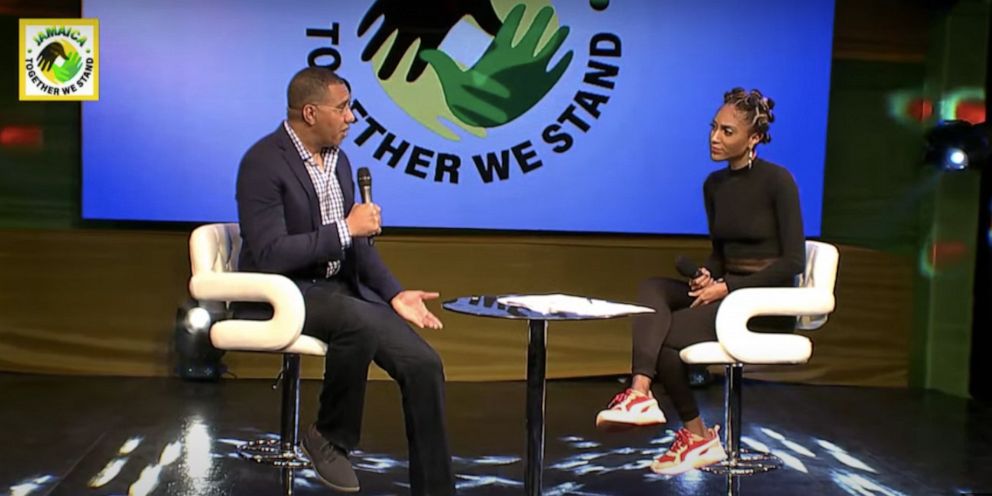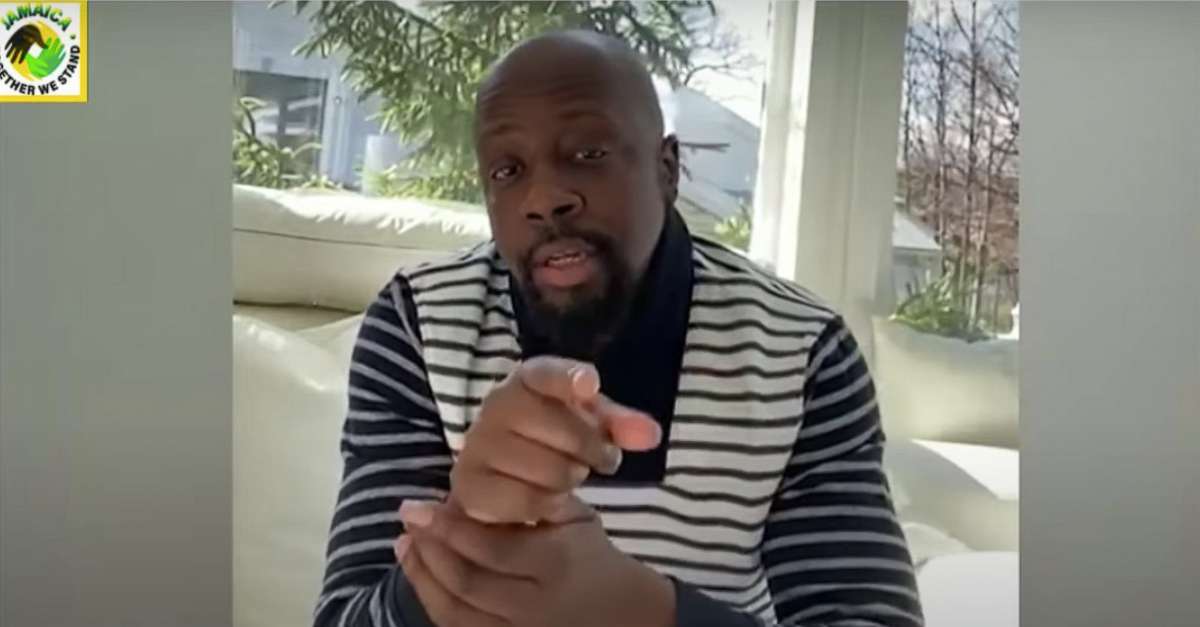Stars Wyclef Jean, Sean Kingston, Sting and others plea for Jamaica's healthcare workers
The Caribbean nation organized a worldwide telethon on Sunday night.
A small island nation in the Caribbean brought together some of the world’s biggest names on Sunday night, seeking to raise millions of U.S. dollars for doctors, nurses and other healthcare workers fighting the coronavirus pandemic in Jamaica.
“They are going to be the ones on the frontline leading the race,” music star Wyclef Jean said during a six-hour telethon, part of a campaign dubbed “Together We Stand.”
The telethon, broadcast around the world, underscored the hardships ahead not only for smaller countries like Jamaica but bigger ones like the United States, which is still battling the COVID-19 coronavirus.
The event featured some of Jamaica’s most popular celebrities, including Olympian Usain Bolt and musicians such as Sean Kingston, Sean Paul, Shaggy, and Ziggy, Damian and Stephen Marley, the Grammy award-winning sons of the late Bob Marley. But the event also featured the likes of Sting and Gloria Estefan.
“Please donate to support your healthcare workers, who are fighting this amazingly courageous fight against COVID-19,” Sting said in a pre-recorded video. “Stay at home, and donate.”
Sunday night's unified message for Jamaicans echoed one that authorities began pushing weeks ago inside the United States, as U.S. hospitals, police departments and other first responders scrambled to secure enough masks and other gear to protect themselves.

“The people of the United States … see how disastrous this is as a disease, and the impact it can have on even the most well-resourced health service," Jamaica’s prime minister, Andrew Holness, said during Sunday night’s telethon.
But the telethon, organized with the backing of the Jamaican government, also reflected a key challenge facing parts of the world where the coronavirus is only beginning to spread.
“Some people are not taking it as seriously as they should,” Holness warned during the telethon’s Sunday night program.
Fewer than 100 cases have been reported inside Jamaica. And while Jamaicans are largely “aware” of what has transpired elsewhere, that awareness has not necessarily “translated” into “social distancing” and other important lifestyle changes, especially in rural areas, according to Holness.
The same could be said for parts of the United States, where coronavirus has remained a relatively distant threat and more restrictive measures have not been implemented.
“Easter Sunday [some] still went to church, some people went to the market, some people went shopping, some people still gathering in their town squares,” Holness noted of worshippers in his own country.
The warnings from Holness came just a few days after Jamaican reggae star Chronixx announced on Instagram that he is “not buying the COVID-19 b.s.” and would not participate in “the circus.”
He has since deleted the post, replacing it with a message telling his followers to "take all necessary steps to reduce the risks of spreading and being affected by this virus."
"Don’t take it lightly and don’t take anything for granted," Chronixx added.

That is the message emphasized during Sunday's telethon, which was broadcast on Jamaican television and online.
“COVID-19 is a very serious issue,” Wyclef Jean said, noting that some of his family members already “fell victim” to the disease.
“So let’s get in front of it,” the Haitian-born musician and singer said.
In his own video message, artist Sean Paul said, "Please continue to follow the social distancing guidelines, and give thanks for life."
On Sunday, the United Way chapter in Jamaica announced that it was donating $4 million to the effort, and another organization representing restaurants across Jamaica said it was donating another $2 million.
Americans may not have recognized most of the artists and speakers who appeared during the telethon, but the artists and speakers represent a country that more than 1.8 million Americans reportedly visited each year.
And while Jamaica’s own population barely tops 2.9 million, its tourism industry – all but shuttered during the coronavirus pandemic – is a significant part of the country’s economy.




